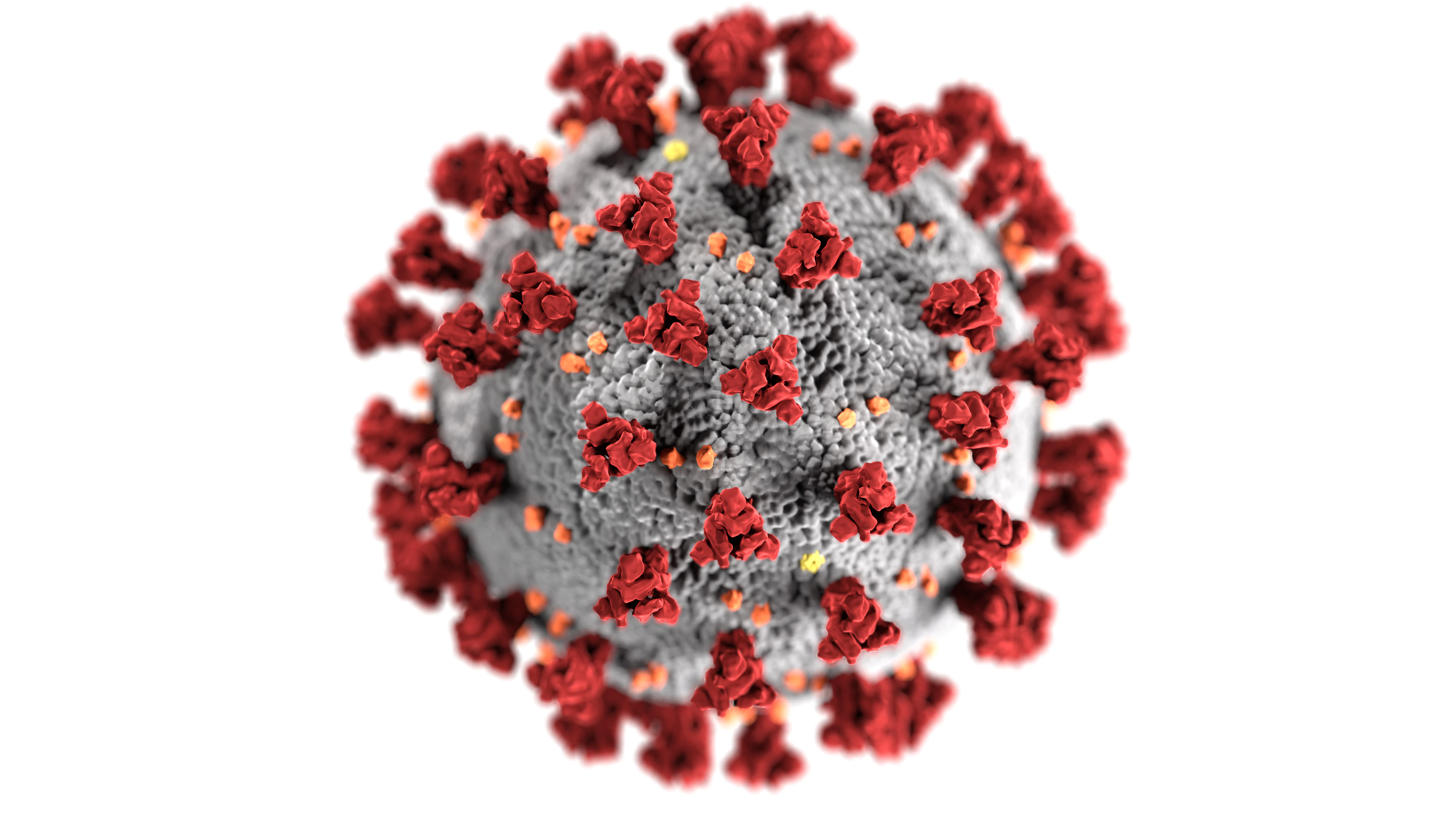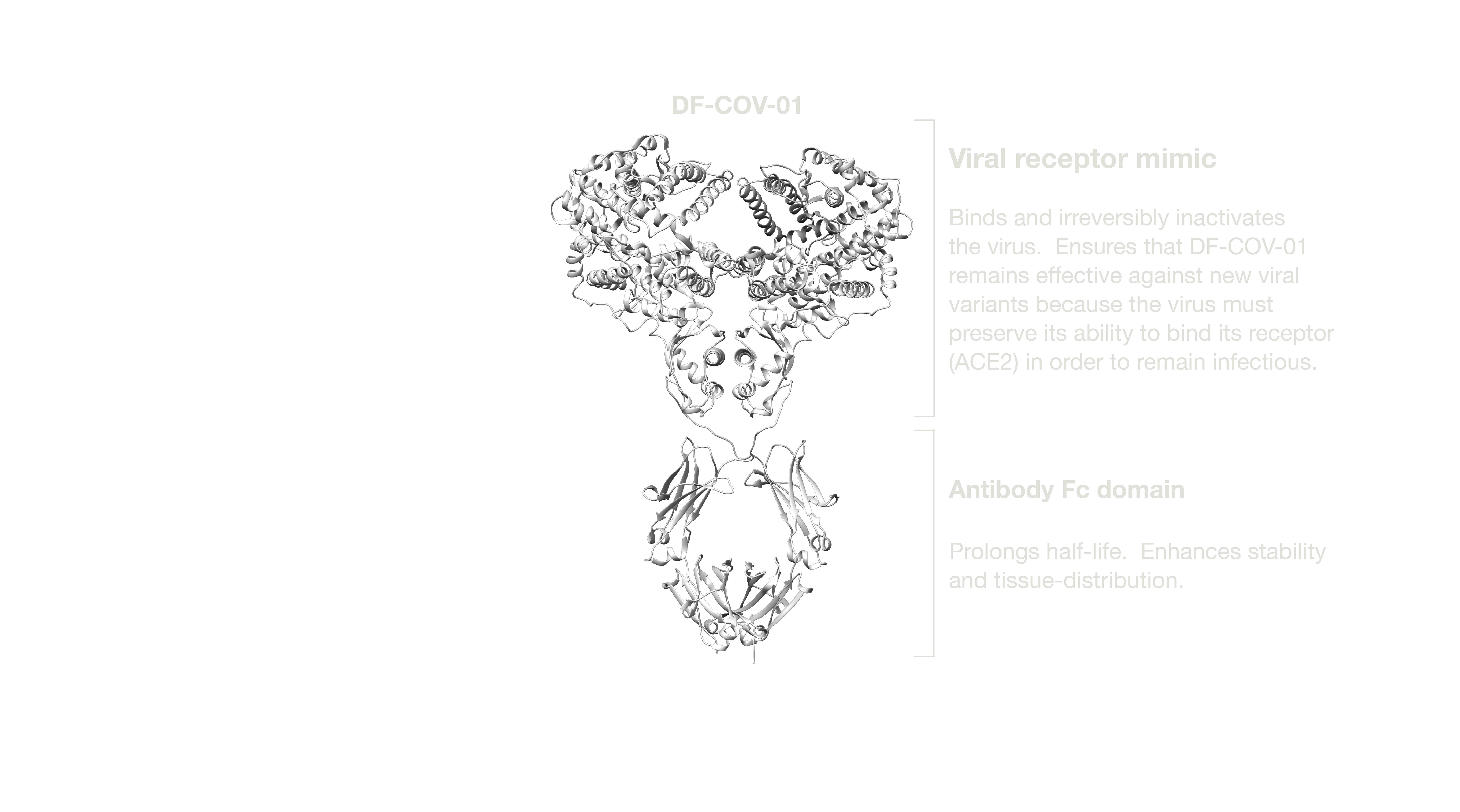

Monoclonal antibodies are important in the response to viral threats because they can both prevent and treat disease. In the COVID-19 pandemic they have been used to protect immunocompromised people from infection and to treat patients who cannot be treated with oral antivirals.
But respiratory viruses change quickly. Minor changes can dramatically reduce the effectiveness of monoclonal antibodies, and these evasive changes are favored by natural selection. Because of this, the useful lifespan of monoclonal antibodies in a pandemic is limited.
COVID-19 illustrates this point: every antibody shown to be effective in clinical trials – approximately 10 – has lost its activity as the virus has changed over time. This includes antibodies that were identified through advanced screening strategies and believed to be broadly active at the time of development. No antibodies remain authorized by the FDA for use against currently circulating variants.
DF-COV-01, our lead compound, could fill the gaps left by the failure of the monoclonal antibody class in the ongoing pandemic and also serve as a ready-made countermeasure to combat future coronavirus pandemics.
DF-COV-01 is similar to an antibody, but with a crucial difference: it binds and neutralizes the virus by mimicking the virus’s cell surface receptor. Since binding to this receptor is required for infectivity, natural selection enforces binding to the drug even as new variants continue to emerge.
Rather than fighting natural selection, as antibodies do, we use it to our advantage.

DF-COV-01 is designed to improve the efficacy and safety of the receptor decoy approach. It binds tightly to all tested SARS-CoV-2 variants and neutralizes antibody-resistant variants at a sub-nanomolar IC50 with no loss in potency. It has a long half-life and is effective against SARS-CoV-2 in animal models. These findings were published in a Science Advances research article.
People with weakened immune systems are particularly vulnerable to COVID-19. These individuals may not respond to vaccination and are at a higher risk of infection. They are also at a higher risk of developing severe COVID-19 if they become infected.
Millions of Americans, and people throughout the world, are immunocompromised. Those with blood cancers, organ transplant recipients, and people with autoimmune conditions requiring immunosuppression are at a particularly high risk of severe COVID-19.
With the failure of monoclonal antibodies, immunosuppressed individuals have no options available for protection. DF-COV-01 has the potential to fill this important need.
Many coronaviruses poised to enter the human population also utilize the ACE2 receptor to infect cells. Recent studies suggest that the frequency of cross-species viral transmission may increase as changes in climate and land use continue globally. DF-COV-01 could serve a critical role as a ready-made countermeasure to combat future pandemics.
We have successfully performed Good Manufacturing Practice (GMP) development and are advancing key studies to support an Investigational New Drug (IND) application.

Dr. Freeman is a Professor of Medicine at Dana-Farber Cancer Institute and Harvard Medical School, and a world-renowned immunologist. He is best known for discovering PD-L1 and elucidating the role of the PD-L1/PD-1 pathway in the antitumor immune response, discoveries that enabled the development of cancer immunotherapies such as Keytruda (pembrolizumab), Opdivo (nivolumab), and Tecentriq (atezolizumab). He has over 90 issued US patents on biologic therapeutics and immunotherapy. He has co-founded four biotechnology companies including CoStim, which was acquired by Novartis. Dr. Freeman is a member of the National Academy of Sciences and holds an AB and a PhD from Harvard.

Dr. Torchia is a physician/scientist at Dana-Farber Cancer Institute with expertise in immunology, oncology, and protein engineering. His work has resulted in several awarded and pending patents on biologic therapeutics. He is a 2020 American Society of Clinical Oncology (ASCO) Young Investigator Award recipient and a recipient of the 2022 Claudia Adams Barr Award for innovative basic cancer research. Dr. Torchia received an MD and a PhD in immunology from Stanford. He trained in internal medicine at Massachusetts General Hospital and hematology/oncology at Dana-Farber Cancer Institute.

Dr. Peters has over 30 years of experience in the biotechnology and pharmaceutical industries, beginning at CSL Behring and then serving in various executive roles for Realm Therapeutics (RLM). More recently, he served as CEO of Pinpoint Therapeutics. He is experienced in managing large clinical trials and has been instrumental in guiding seven products through FDA approval. Dr. Peters received an MD and a PhD from the Freie Universität Berlin before completing post-doctoral work at the National Institutes of Health.

Alex Martin is Chairman of the Board of Invaria. He previously served as CEO of Palladio Biosciences and Realm Therapeutics (RLM). Prior to this, Alex was COO of Intercept Pharmaceuticals (ICPT) and CFO of BioXell (BXLN). Alex began his career at SmithKline Beecham and later joined Novartis as Vice President of Global Business Development and Licensing. He is a guest lecturer at the Wharton School and Columbia Business School. Alex holds a BA from Cornell and an MBA from Harvard.